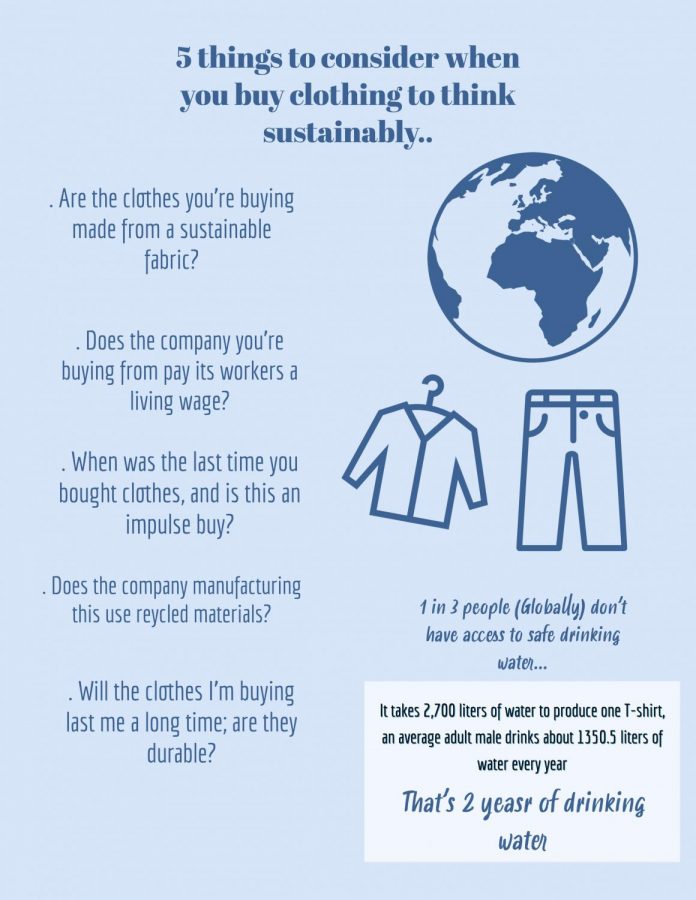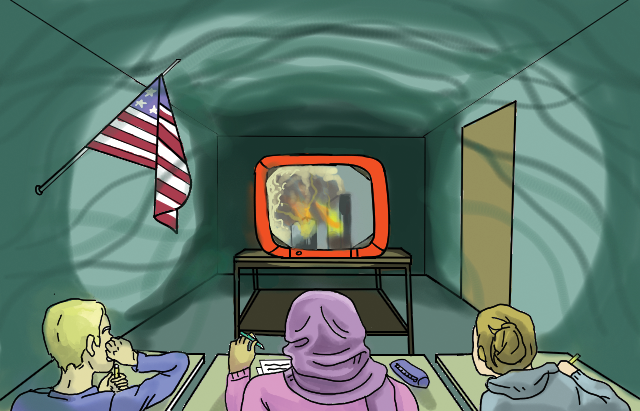The world is on fire and we’re sitting by watching it burn. When you think of climate change, fashion is definitely not your first thought. It’s a surprising contributor, and according to a UN study in 2018, 10 percent of all human carbon emission is from clothing.
“I’ve never really thought too hard about it. I usually try and buy from companies that use recycled material, like American Eagle and Nike,” junior Sophia Lamb said. “I know I should pay more attention, but it’s difficult to remember.”
Lamb’s not alone in this. Most students don’t think about the effects of their shopping habits on the world. People want convenience when it comes to their clothes, to keep up with what’s new, and to fit in.
The way fast fashion companies operate is to predict the new trends and produce products as fast and as cheap as possible. Then push out the next lineup of trendy clothing. It creates a never ending cycle of buying cheap clothes while they’re popular and replacing them months later.
Many students at West Albany aren’t aware of the effects that fast fashion has on the environment. It seems like a simple fix, but the reality of sustainable fashion isn’t quite that simple. Not everyone can afford the higher prices of more durable clothing. Shopping from online companies like Zara, H&M, ROMWE, and SHEIN can be more affordable in the short term, but when you buy durable clothing, you would get years of use from one purchase. You would make a small but important difference.
Many companies ship their products to the United States from across the world for cheaper labor costs, and create even more carbon emissions by flying clothes over oceans.
Another harsh aspect of the industry is the inhumane conditions of the labor force behind such cheap clothing. Companies actively move locations to wherever they can get the cheapest labor; 88% of workers in fast fashion companies aren’t being paid a living wage, according to ___. They are given a hard job with minimal pay because it is better than letting their family starve. In 2014, even the European Parliament actively used the term “slave labor” to describe the sweatshop conditions these companies utilize.
No one is saying people shouldn’t buy clothes, rather that you should do your own research on the carbon footprint and the environmental impact you create when you buy clothes; and you must consider the ethics of the companies you support.
In the end, everyone can, and should, make their own choices regarding what they wear. You have to make the decisions that are best for you, while taking into consideration the bigger picture. Each and every person has the ability to make educated and thoughtful decisions about how they buy their clothes.




